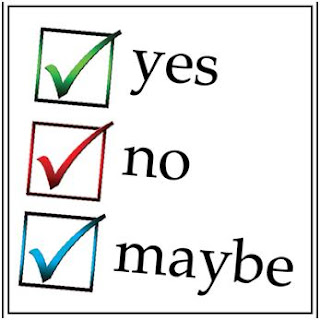
It is important that you choose accounting software that is both suitable for your business, and is easy for your employees or yourself to use. Manual accounting can be very time-consuming, and is also prone to human error. No matter how experienced a traditional accountant is, he or she can still make mistakes that software cannot make.
Most people now understand that a 'computer error' is either a programming or an input error, and that people make errors, not computers. It's somewhat amusing that a machine that can count only in ones and zeros cannot make computational errors. Perhaps we should follow their example! Perhaps one day we will, but that is irrelevant for the moment!
For the same reason, established accountancy software not only saves you time and effort, but also eliminates calculation errors. Redundant data entry is avoided by means of fields and macros, where addresses, for example can be entered at the press of a single button.
Such software has developed in recent years to the extent that virtually no accountancy expertise is required to use it. Hence, if you run a small business, you may be able to avoid the cost of employing a dedicated accountant for anything but auditing and signing off your accounts.
The following 5 tips on how to choose accounting software should give you a good feel for how to select an accountancy software package that best suits your needs. Keep in mind that most modern packages can be run by anyone with computer literacy, and if you make the right choice you can save the cost of hiring a qualified accountant.
1. What do You Need?
First, you should list the accountancy features you require. If you only need to record your income and expenditure, and record profit and loss, then the package you require will be fairly basic and therefore of relatively low cost. There's no point in buying a Ferrari just to do the shopping!
However, if you run a larger organization, where you wish to track the finances and expenses of individual departments or even individuals, then you will need a few more bells and whistles. You may opt for a more expensive industry-specific accountancy package if you are in an industry such as construction, real estate or finance. In short, the accountancy software you choose should meet your needs, and you are better purchasing the best that meets these needs than an average multifunctional package offering options you will never use.
2. Additional Features
In practical terms, additional features would be included in the heading above. However you also have the choice of the physical form of your hardware to consider. Should the software be suitable for online or desktop use, and should it particularly be designed for portable devices. Can you use it on your laptop and on an iPad or other portable electronic device? Ask this question of yourself first, and if hardware versatility is important then ask the software provider before committing to purchase.
3. Which Brand?
There is a large number of accounting software packages available and the big named brands are not always the best value for money. Once you have decided on the options you need you will still find a good choice available to you - how do you choose then? The important factors are:
a) to make sure you have the features you need,
b) is the support good and
c) can you get a free trial before committing yourself.
4. Shelf Life and Upgrades
You must make sure that your software will not be obsolete when the next generation of computer comes along. Some software packages are more expensive than the hardware that runs them and it is important that you get free upgrades as hardware develops.
Your accountancy software should also be able to be upgraded as your business grows. Rather than purchase a new package, you should look for software that offers extensions or upgrades to your initial package to compensate for your developing business.
5. Cost: Outright Purchase or Lease
Depending upon your choice of accountancy software, you should be able to either purchase the software outright, pay monthly or lease it. Some offer the software on a monthly subscription basis, and often this or leasing might be your preferred method of payment since you are guaranteed upgrades as technology advances - either in software or hardware.
A final tip is that, once you have come to a decision, you should check out peer opinion of your choice of accounting software by visiting forums and reviews. You should enter a search term such as 'MySoftware review' and check up what others that have used the package think of it.
This can be the most powerful way to get the best information on your accountancy software available to you. Peer opinion counts for a great deal, and this is possibly more important than any of the above 5 tips on how to choose accounting software.
Author:
Michelle Jones, Managing Partner of B & M Financial Management Services, LLC, a full service accounting and financial firm, specializing in small business consulting, accounting services and financial solutions. For more information about our services visit http://www.bmfms.com.


No comments:
Post a Comment